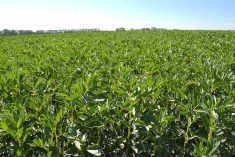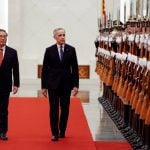Record food prices will hit the world’s poorest hardest, raising the risk of riots, export bans, foreign-owned farmland expropriation and further price spikes fuelled by short-term investors.
The UN Food and Agriculture Organization said on Jan. 6 food prices hit a record high in December and could rise further on erratic global weather patterns.
For the first time they outstripped levels reached in early 2008, when spiralling prices prompted riots in countries including Haiti, Egypt and Cameroon and brought demands for tighter commodity market regulation.
Read Also

AgSphere cultivates new era for agri-food innovation
A new Calgary-based hub seeks to join universities, investors, multinationals and start ups to spur cutting-edge advances in farm-to-fork sector.
The potential humanitarian, political and business impact – particularly in impoverished states where food makes up the largest component of the inflation basket – is already alarming policy-makers and senior officials.
“Food price increases impact the poor hardest as food is a higher proportion of their incomes,” said James Bond, chief operating officer of the World Bank’s political risk insurance arm the Multilateral Investment Guarantee Agency (MIGA).
“It creates significant tension in poorer countries, exacerbates standard-of-living disparities and is a major source of unrest.”
Political risk
So far, experts say weather-related supply shocks – floods in Australia, drought in Argentina, dry weather and fires in Russia and potentially crop-damaging frosts in Europe and North America – were largely to blame. But they worry politics and markets could soon take over to produce a vicious circle.
“The danger is that what happens now is that you get a second shock as countries can respond by imposing export bans and financial markets investors pile in for short-term investment, pushing prices much higher, as they did in 2008,” said Maximo Torero, divisional director for markets, trade and institutions at Washington D.C.’s International Food Policy Research Institute (IFPRI).
Torero said reports of unrest could further fuel price rises, driving speculative investment and promoting panic buying – even if the causes might often in reality be more complex.
He pointed to reported food riots last year in Mozambique as an example, saying in reality they were as much about subsidy cuts as supply issues.
“Clearly what is needed is to increase production through appropriate investment in agriculture, to increase the information on stocks around the world, strengthen the regulation of the futures markets and to have safety net mechanisms to protect the poorest consumers,” he said.
———
“Foodpriceincreasesimpactthepoorhardestasfoodisahigherproportionoftheirincomes.”
JAMES BOND
MULTILATERAL INVESTMENT
GUARANTEE AGENCY














